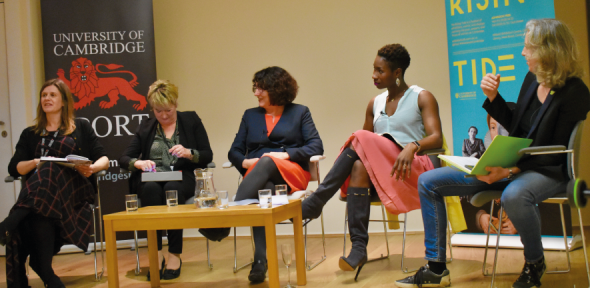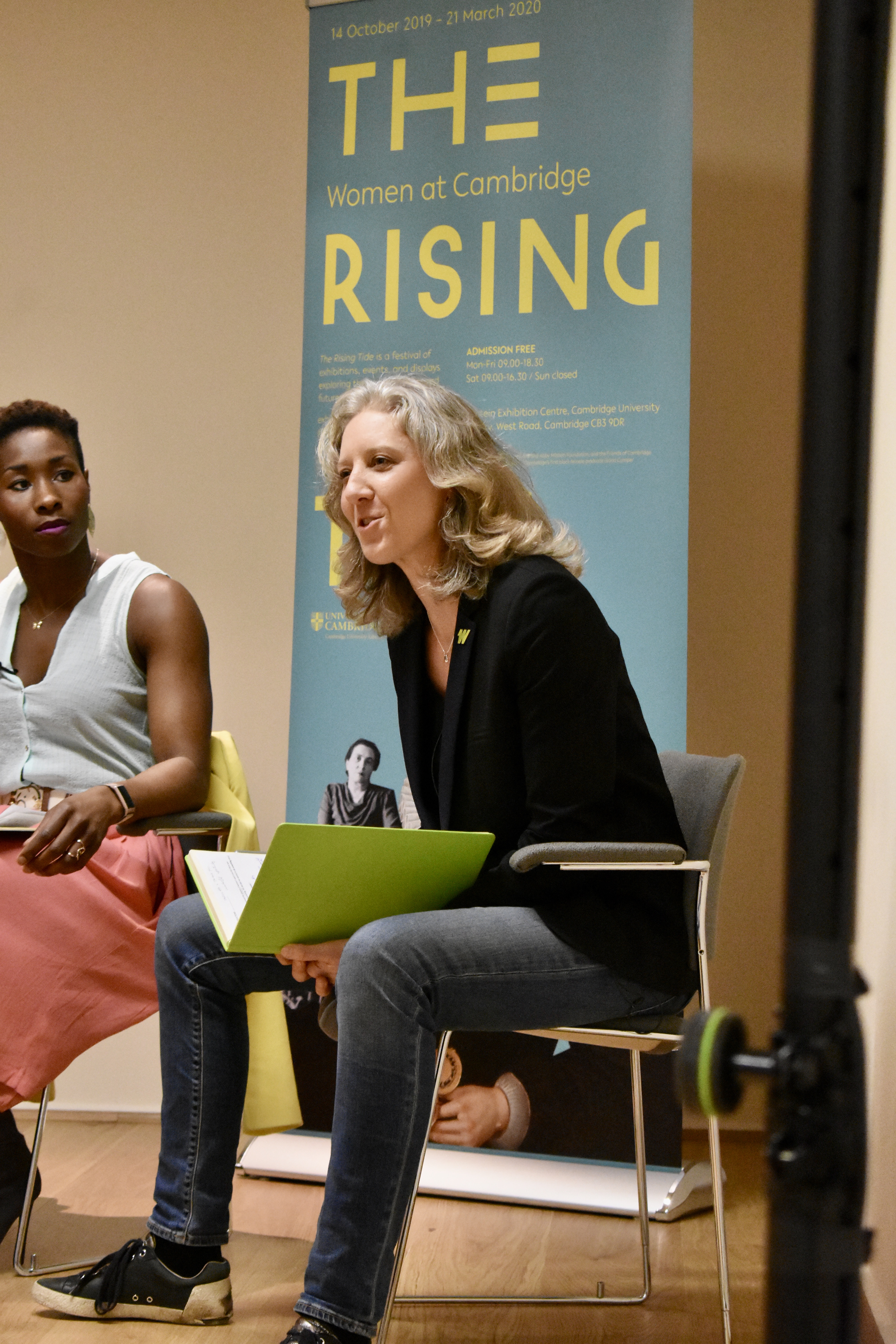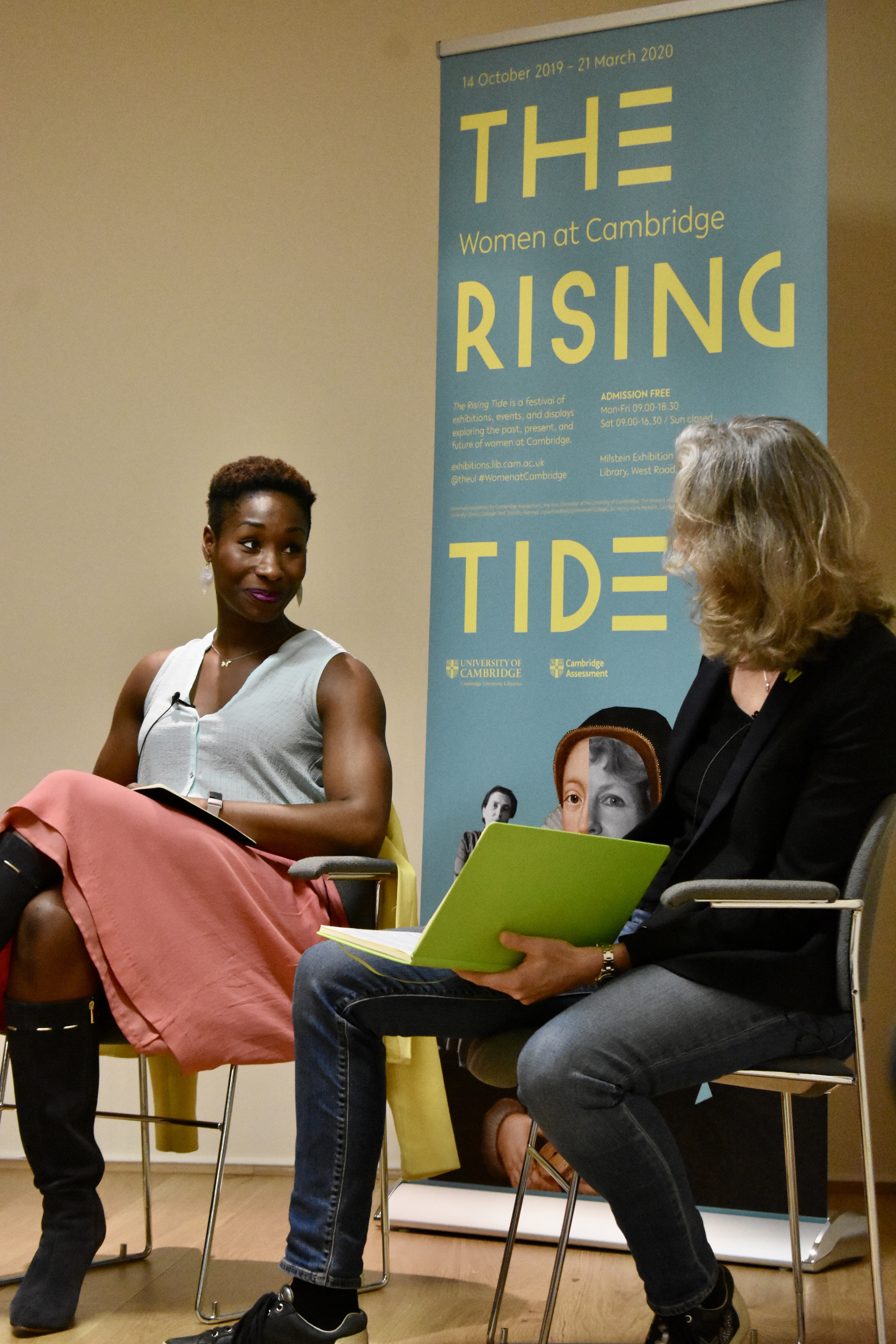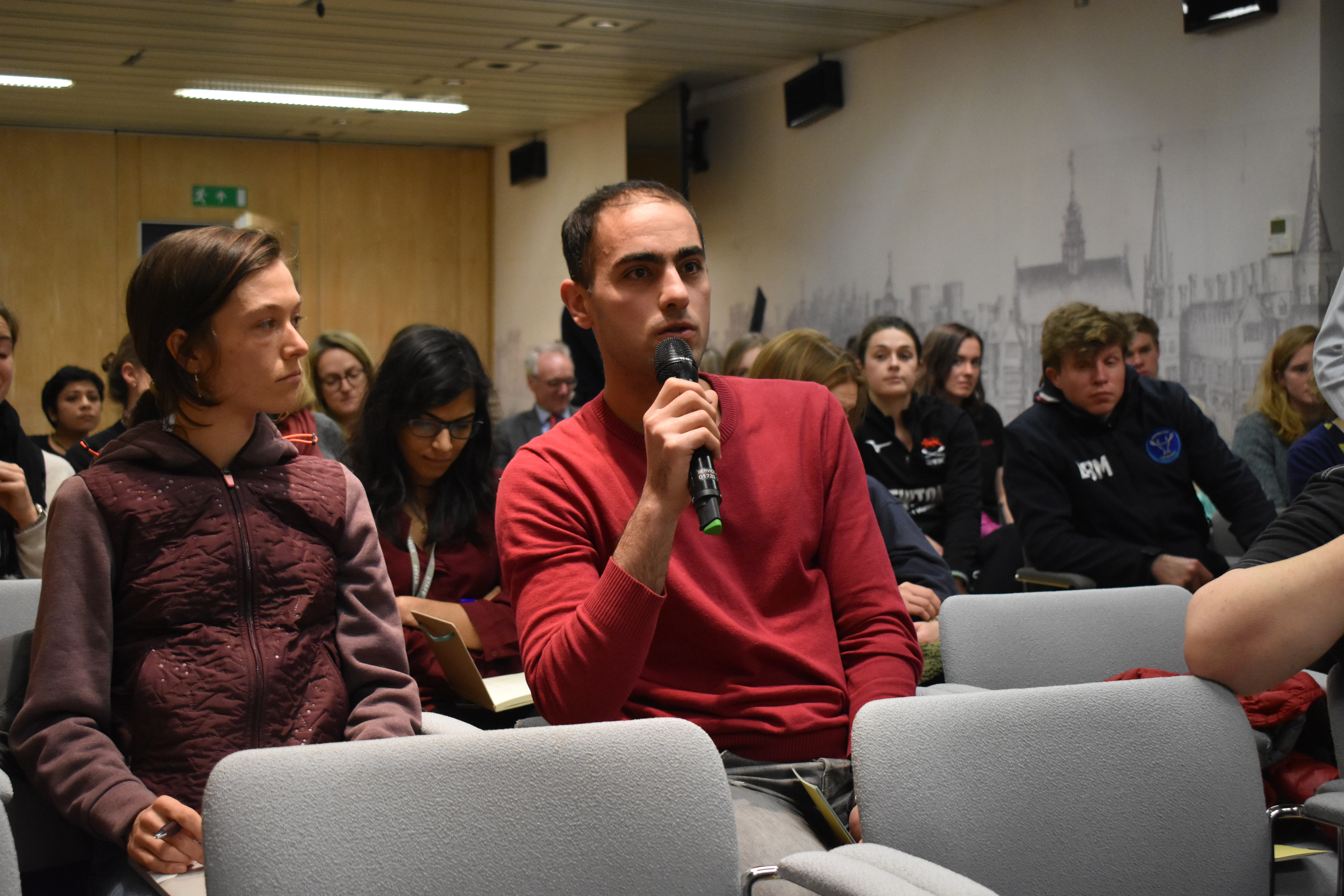
Submitted by Ashley Edwards on Thu, 13/02/2020 - 11:25
“History Helps Us Explain the Story of Where We are But Shouldn’t Limit Where We Go”
Working in conjunction with the University Library, the University of Cambridge Sport brought together a panel of women encompassing the University, World Rugby, the Local Community and Elite Performance Sport to discuss the barrier to, and opportunities for, engaging girls and women in sport and exercise.
The panel was compered by Tammy Parlour MBE, the founder and CEO of the Women’s Sport Trust, who said “Sports are starting to see it [women’s sport] as the biggest area for potential growth in their sport, the media are starting to recognise that there is an audience. Athletes are being billed as the next biggest influencers, and brands are starting to see the opportunities of women’s sport.” “It feels like a really exciting time for women’s sport”
Tammy Parlour MBE, the founder and CEO of the Women’s Sport Trust
Debbie Kay, who is Head of Community Services at Cambridge City Council introduced herself as someone who 40 years ago was a “frustrated footballer”, saying
“I was so keen on football, I practiced every day outside in our garden, but I wasn’t allowed to play with the boys in the park, and I certainly wasn’t allowed to play at school.” Debbie said she didn’t start playing football until she moved to Cambridge where she said “I found to my delight 3 or 4 teams that I could join”
Deputy Director of sport at the University of Cambridge, Karen Pearce discussed how sport is recognised within the University:
“There are some really good examples of where academics and tutors really do support their students in doing physical activity and can see the benefits.”
“We’ve had a few examples this year of people who are feeling like things are getting overwhelming and the tutors refer them to a session with a personal trainer.”
“There is actually quite a lot of support within the University for physical activity and sport. We often hear about the cases where there isn’t, they dominate the storyline, and we need to actually celebrate some of the examples where academics are really behind sport and physical activity at Cambridge”
Deborah Griffin OBE is not only a founding member of the Women’s Rugby Football Union (WRFU) but also Bursar at Homerton College, and agreed with Pearce, noting that she had witnessed a change in her time at Cambridge;
“Certainly in the first few years I was here, there was that perception that people that were coming here should not be doing sport, that it would take time away from their academic studies. Like other universities, we’ve had such an increase in mental health issues. I’ve certainly seen with the academic staff within my own College that they now recognise that it’s important that people do walk away from their books on occasion and that they do do something else to balance the intense period of study.”
Speaking about the provision of sport for girls at school, Griffin said
“I worry about the amount, particularly at state schools, of exposure that they get to sport. Although I am a rugby-passionate person, I do believe that there is a sport for everybody, and you need to be exposed at a young age to as many sports as possible, so that you find the sport that suit you, and I don’t think that happens.”
University of Cambridge Alumna Phyllis Agbo followed-up on school level sport, suggesting that
“We need to understand what it is that girls really want out of sport. Passion was something that really drove sport for me. If you can try and make it emotive, so it’s not just about being at school and having to do sport, you want to be there, and you’ve chosen what it is that you want to do. It needs to be a choice rather than a must.”
University of Cambridge Alumna, Phyllis Agbo
The session concluded with thought provoking questions form the audience including suggestions about developing the Park Run model within other sports, and a comment from a student audience member that “For young girls, there’s almost a connotation about sport – if you were to do something like Zumba in PE. There’s so much more to sport and activity than just the exercise – for your mental health, for being social, at school level, there could be such a change in the provision level.
The panel discussion was part of The Rising Tide at the University of Cambridge Library – a series of exhibitions, events, and displays exploring the past, present, and future of women at Cambridge.




